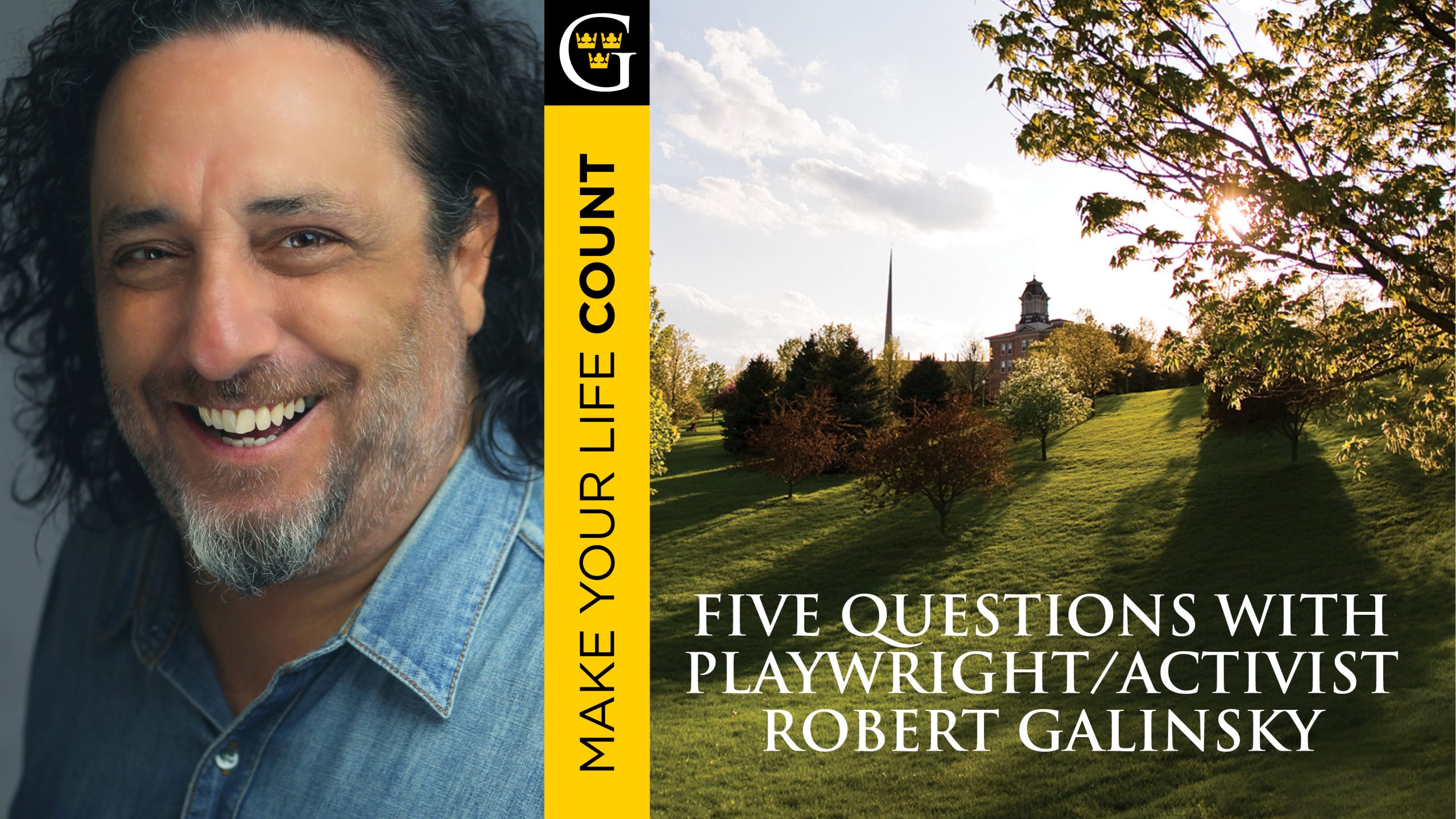Robert Galinsky teaches writing and performance at Rikers Island, New York City’s main jail complex, and is head speaker coach for TEDxTeen. In support of the upcoming performance of Our Country’s Good (the story of prisoners on their way from Britain to the penal colony of Australia in the 1700s), Galinsky will meet with Gustavus Adolphus College students and participate in a talk-back with students and audience following Thursday night’s opening performance. Tickets are still available for all performances.
We asked Galinsky a few questions about his work…
Gustavus: Describe your work with incarcerated young people at Rikers Island—what do you do?
Galinksy: Because incarcerated youth have so much working against them, they have to work much harder than the average teen in order to experience success. They are the opposite of the worst of the worst, they’re “the best of the best.” So, I enter their space with books, magazines, word games, paper, pencils, scripts, exercises, and improvisations, and we all find our place with the materials and we create, speak, play and debrief—in any order. We have discussions around global crisis and local issues and then we write, rewrite, and recite. “The best of the best” — absorbed and inspired.
Gustavus: For young people who are incarcerated, how does writing and performing change their lives?
Galinsky: Writing, reading, and/or performing lets the barricaded voices of my students come out into the open. The majority of incarcerated young people are constantly being told they’re wrong. In my workshop, one of the first things I say to my students—loudly to the entire group—”You are not wrong. No one in this room is wrong.” Every kid that’s ever heard me say that looks at me like I’m crazy, like there’s something wrong with me, because they are always hearing how wrong they are. The sound of the words “you are not wrong” reignites dormant connections that are in the kids’ brains. Hearing the words over and over gets them believing the truth: That they aren’t wrong.
Gustavus: What are the parallels in Our Country’s Good to your own work with those who are incarcerated?
Galinksy: There is a lot of “make-believe” going on amongst people who are incarcerated, staff included. Everyone is bound by the fact that they’re equals, fully owned and bonded by “the man”—staff included. The characters in Our Country’s Good are all maneuvering just like those I work with in incarceration settings. When you’re not allowed to be your own person, you’re a slave, and the people in Our Country’s Good are finally being allowed to explore themselves by playing someone else. So, the parallels are layers that contradict sometimes, and at times dovetail with one another: being true to one’s beliefs, posing and posturing, knowing your “role” and surviving, “acting the part” and thriving, perhaps even finding a clearer approach on how to live a positive present in order to feed a bountiful future.
Gustavus: What do you hope is the takeaway for audiences who come to see Our Country’s Good?
Galinsky: I hope the audience sees each performer’s emotion, truth, and talent and is moved to change something, anything, in their lives. I hope because the audience saw Amy Seham’s group of Gustavus student truth-seekers making art and allowing us to be witness, that they let more love and hope grow.
Gustavus: What do you hope is the takeaway for the Gustavus students who are producing and performing in it?
Galinsky: I wish that the Gustavus students value and enjoy the time that they spent researching around the play’s text, its history, and what other audiences and productions over time have to say about the show. I hope they never forget the burning excitement that Amy Seham brings to the activity of learning and being a servant of the theatre. Lastly, I hope that everyone involved, from crew to cast, found something inside of themselves they didn’t know existed prior to the process of putting on the production. And that it will help change the world we live in for the better.

Leave a Reply
You must be logged in to post a comment.